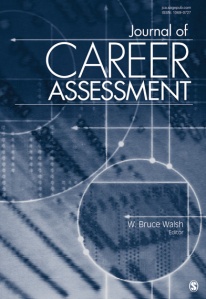Exploring the Effects of Attachment in Work Relationships
In the 21st century, studies on human relationships in the workplace have become a regular occurrence. In the article “Attachment and Autonomy in the Workplace: New Insights”, Hadassah Littman-Ovadia, Lior Oren and Shiri Lavy at Ariel University explore the correlation between avoiding attachment in work relationships and work burnout and emotional distress. Read the article and others like it in the most recent issue of the Journal of Career Assessment. 
The Abstract:
Contemporary researchers suggest that working is a relational act. Accordingly, literature reflects increasing interest in the relevance of attachment theory to vocational and organizational phenomena. In the current study, we focused on associations of avoidant attachment orientation (characterized by obsessive self-reliance), anxious attachment orientation (characterized by over-dependence), and a central job characteristic (job autonomy) with work-related attitudes and emotions (work engagement, career commitment, work burnout, and emotional distress). Results from 150 Israeli employees revealed significant associations between avoidant attachment and all work-related outcomes, while anxiety was associated only with work burnout and emotional distress. Job autonomy was associated with all work-related outcomes, and although attachment anxiety and avoidance were not associated with job autonomy, the interactions between avoidance and job autonomy (but not the interactions between anxiety and job autonomy) significantly contributed to explained variance of all work outcomes. Simple slope analyses showed significant associations between avoidance and work-related outcomes in high job autonomy conditions and nonsignificant associations in low job autonomy conditions, surprisingly suggesting that high job autonomy specifically disadvantages highly avoidant employees. Theoretical and practical implications for organizations and for attachment theory at work are discussed.





















































































